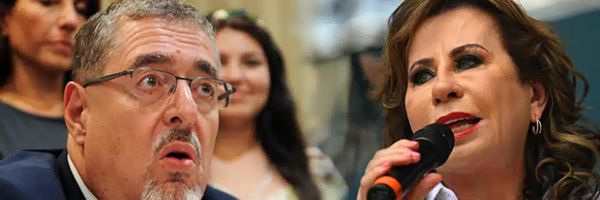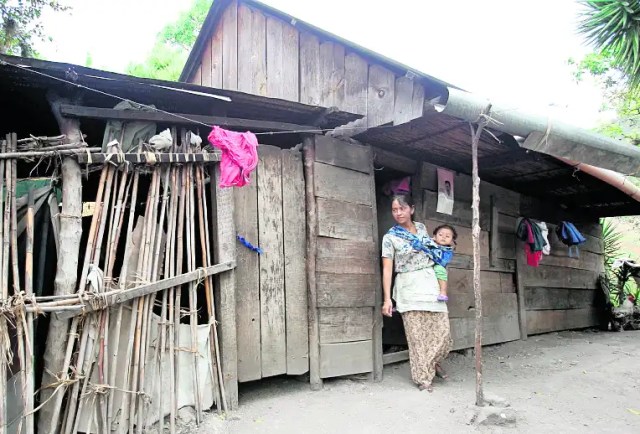Guatemala in Electoral Context 2023
 Ollantay Itzamná, Orinoco Tribune, August 2, 2023 —
Ollantay Itzamná, Orinoco Tribune, August 2, 2023 —
On August 20, Guatemala will vote for more neoliberalism, more racism, and continued dispossession of indigenous territories.
Last June 25, the general elections were held to elect president and vice-president, 160 deputies to the Congress of the Republic, 20 supranational deputies to the Central American Parliament and 340 municipal governments.
A total of 9.3 million Guatemalans were called to cast their vote both in Guatemala and abroad. Thirty political organizations and 22 presidential candidates participated. Three presidential binomials, under different arguments, were prevented by the Supreme Electoral Tribunal (TSE) from the candidate registration process.
The 2023 electoral process, from its beginnings, was and is being questioned due to the irregularities and arbitrariness that the TSE itself committed or allowed.
The electoral results of June 25, questioned and denounced as fraudulent, declared as winners Sandra Torres, of the National Unity of Hope (UNE) party, with 15% of votes, and Bernardo Arévalo, of the Semilla party, in second place, with 11%. As no candidate obtained 50% +1 of votes, there will be a second round of elections next August 20.
Among the novelties of the results: the null vote exceeded 17%, abstentionism close to 40%, and the blank vote close to 7%. The Congress of the Republic will continue under the majority control of the conservative right-wing groups.
An electoral process questioned from the beginning
Both nationally and internationally, different actors issued warnings and called upon the State of Guatemala, and the TSE in particular, to adhere to what was legally established in the organization and execution of the 2023 general elections process in Guatemala. However, the TSE itself, and the judicial instances of the country, promoted and allowed the irregularities that were highly questioned and questioned by the citizens since the beginning of the process, in terms of registration or exclusion of candidates. Constitutionally barred candidates were registered by the TSE.
The Political Constitution of Guatemala, in Art. 186º, expressly establishes that descendants of former dictators cannot participate as candidates to the first magistracy of the country. However, Mrs. Zury Ríos, daughter of the dictator Ríos Montt (1982-1983), sentenced to 80 years in prison for genocide, was registered as a presidential candidate by the political party Valor. The same Political Constitution prohibits, in its Art. 186. Inc. F., that hierarchs or pastors of churches cannot be candidates to popularly elected positions. The political party UNE registered an evangelical pastor as candidate to the vice-presidency, and thus goes to the second electoral round. Constitutionally allowed candidates were excluded from the electoral process.
Constitutionally permitted candidates were excluded from the electoral process.
The Movement for the Liberation of the Peoples (MLP), a political organization founded by indigenous and peasant communities, which came in fourth place in the 2019 general elections, was excluded by the TSE by preventing the registration of its presidential candidate, under the argument that its candidate for vice-presidency, Jordán Rodas, former Human Rights Ombudsman, lacked a finiquito (administrative control issued by the Comptroller General of Accounts). Rodas proved the existence of this document. But, the judicial system ratified the exclusion. The exclusion of the candidate to the presidency of the City Prosperity party, Carlos Pineda, as well as the exclusion of the president by the party We can, Roberto Arzú, both opposed to the current government, also generated many protests, and subtracted credibility and transparency to the electoral process. Candidates with accusations of drug activity, and even with judicial sentences, were registered.
While the TSE excluded those presidential candidates who were inconvenient to the government and the system (in the case of MLP), the same entity registered candidates for deputies or mayors with serious accusations of drug trafficking, and in some cases even people who publicly defended drug trafficking.
The case of the registration of the candidate for Congress, Manuel Baldizón, for the Cambio party, sentenced to jail for money laundering in the USA, and with criminal proceedings pending in Guatemala, is a pathetic example of the permissive behavior of the TSE. This candidacy was challenged and excluded from the electoral process.
Results of the first round legally muddied
Although the electoral process, prior to June 25, had sporadic acts of protest in the streets against the arbitrariness of the TSE, the actual voting day took place in tranquility. With the exception of 6 municipalities in which the voting was annulled, and the same will be repeated on August 20. Against all published polls, the results of June 25 gave the second place to the Semilla party. A political organization which, like UNE, declares itself to be social democratic.
The rise of Semilla, with its candidate Bernardo Arévalo, was a surprise, especially for the conservative sectors of the country that see in Arévalo ghosts of what was the truncated National Revolution of 1944, which was headed and presided over by his father, Juan José Arévalo.
Faced with this “unexpected” result, 9 political parties demanded that the judicial system order the TSE to review the tally sheets. And thus began the judicialization of the elections.
Simultaneously to this electoral judicialization, the sentence of a Court “ordering the annulment of the legal status of the Semilla party” for illegalities committed in the process of its constitution as a party was issued. In short, injunctions and judicial resolutions come and go, and keep the electorate and the country in anxiety in view of what may happen on August 20, and after that date as a consequence of these “not very transparent” general elections.
In the middle is the government and the US Embassy which, as in no other case, came out early in defense of the Semilla party, demanding the respect of the results of the first round. The truth is that there is a judicial sentence ordering the annulment of the legal status of this party.
Second round without debate or programmatic proposals

If the electoral process and the results of the first round were challenged and delegitimized due to the arbitrariness and the political dispute between the judicial system (Supreme Court of Justice) and the electoral judges (TSE), in addition to the complacent silence of the government of Alejandro Giammattei, the emotional electoral atmosphere established for the second round reinforced the uncertainty and the distortion of what, according to international standards, is understood as a democratic electoral process.
It seems that the current electoral judicial battle is aimed at generating a smokescreen for the electorate to go to the polls without first meditating on the transcendental issues of the country that the next ruler will have to face.
Among the important issues absent in the judicialized electoral atmosphere are:
Corruption. The electorate, apart from the promise of the Semilla party that it will bring back judges and prosecutors who are refugees abroad to reform the judicial system, does not know how and what specifically the promised “fight against corruption” consists of. The UNE, a party whose presidential candidate, Sandra Torres, has already been arrested for “illicit association”, is simply silent on this issue, which is very sensitive for the country.
Drug trafficking. From different communities and municipalities, there were repeated public denunciations in the socio-digital networks of the purchase or payment per vote of up to Q.1,500 (equivalent to $200.00) by local and departmental candidates. In addition, politicians with serious allegations of drug trafficking served as candidates for mayors and deputies. But, these and other variables that determined the elections of the first round were not, and are not, matter of electoral debate.
The public institutions called by law to carry out legal investigations, simply exhausted themselves in defending the electoral process or promoting judicial investigations against the Semilla party.
Neoliberalism. Surprisingly, the neoliberal system in force in Guatemala, with painful consequences for the people and for the country itself, was not and is not a matter of electoral debate. The only political organization that questioned the neoliberal system, through its proposal to revise the privatization contracts, was the MLP.
Both Semilla and the UNE are political parties that in their government programs do not propose the need to debate or overcome the neoliberal system in force in Guatemala.
Socioeconomic inequality. In 2015, when the “anti-corruption euphoria” emerged, 59% of Guatemalans were in poverty.In 2022, 63% of Guatemalans were in multidimensional poverty.
Famine, as a consequence of declining livelihoods and the impacts of climate change, is on the rise in the country.
Although economic remittances from migrants (which represent more than 20% of the Gross Domestic Product) apparently mitigate this reality. This fundamental issue of social inequality is not the subject of the electoral debate for the second round.
Silenced plurinationality. Another republican flaw that tends to be renaturalized in this electoral context is racism and colonial dispossession of the territories of indigenous peoples.
Neither Semilla, nor the UNE, contemplate in their government programs the challenge of recognizing and implementing the collective rights of indigenous peoples such as: right to prior consultation, right to territory, right to self-government, among others.
The Congress of the Republic, according to the results of June 25, will have quantitatively less indigenous and women presence. These and other issues are not under debate in this electoral atmosphere. And, to the surprise of locals and strangers, even the indigenous organizations, which at some point proclaimed themselves as “plurinational”, are now calling for a vote for Semilla, without taking into account the fact that they do not recognize and implement the collective rights of the indigenous peoples.
Thus, on August 20, Guatemala will vote for more neoliberalism, more racism, and continued dispossession of indigenous territories.
